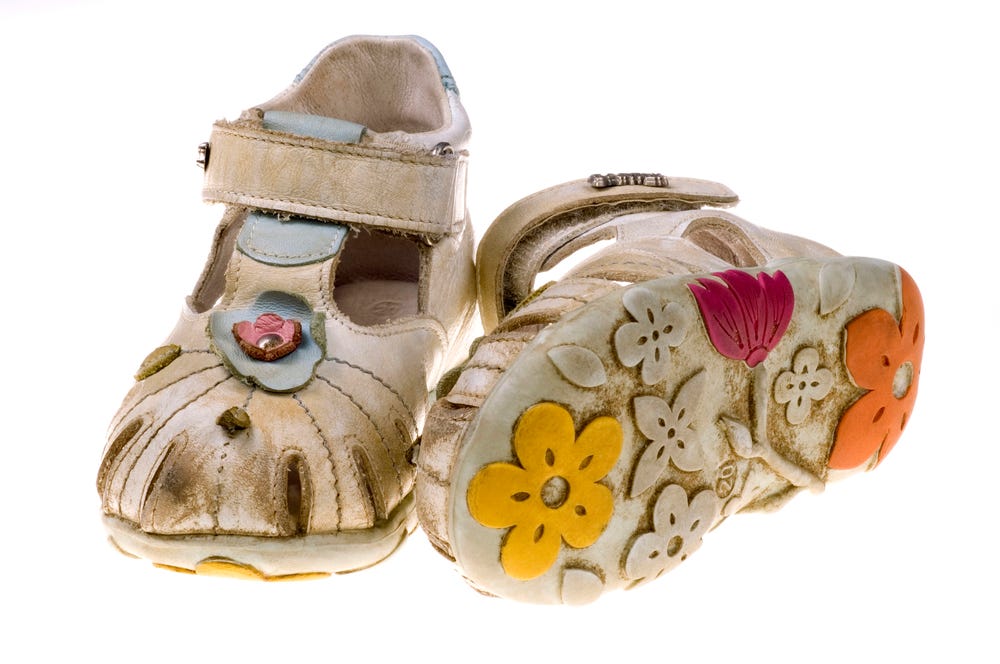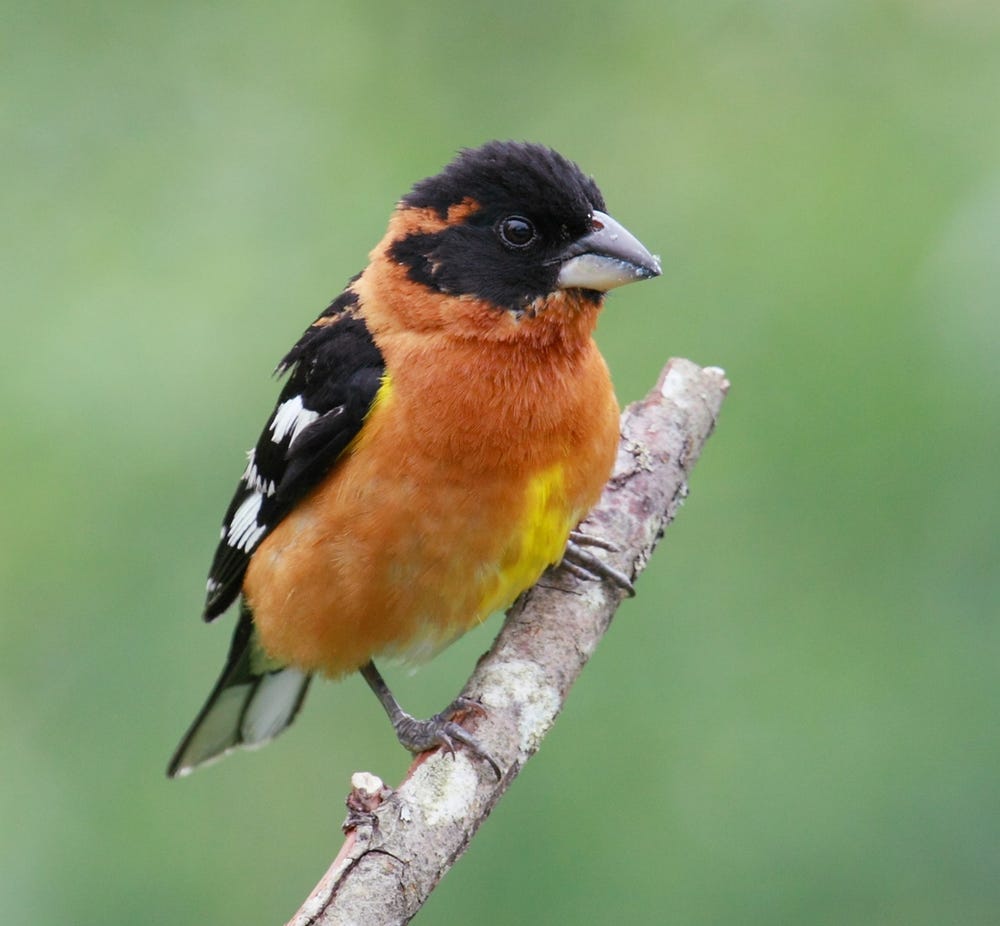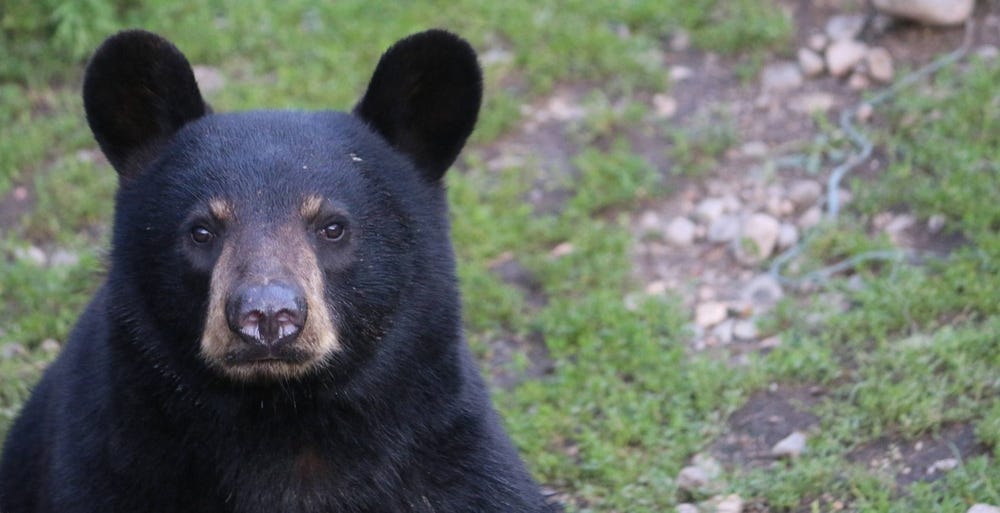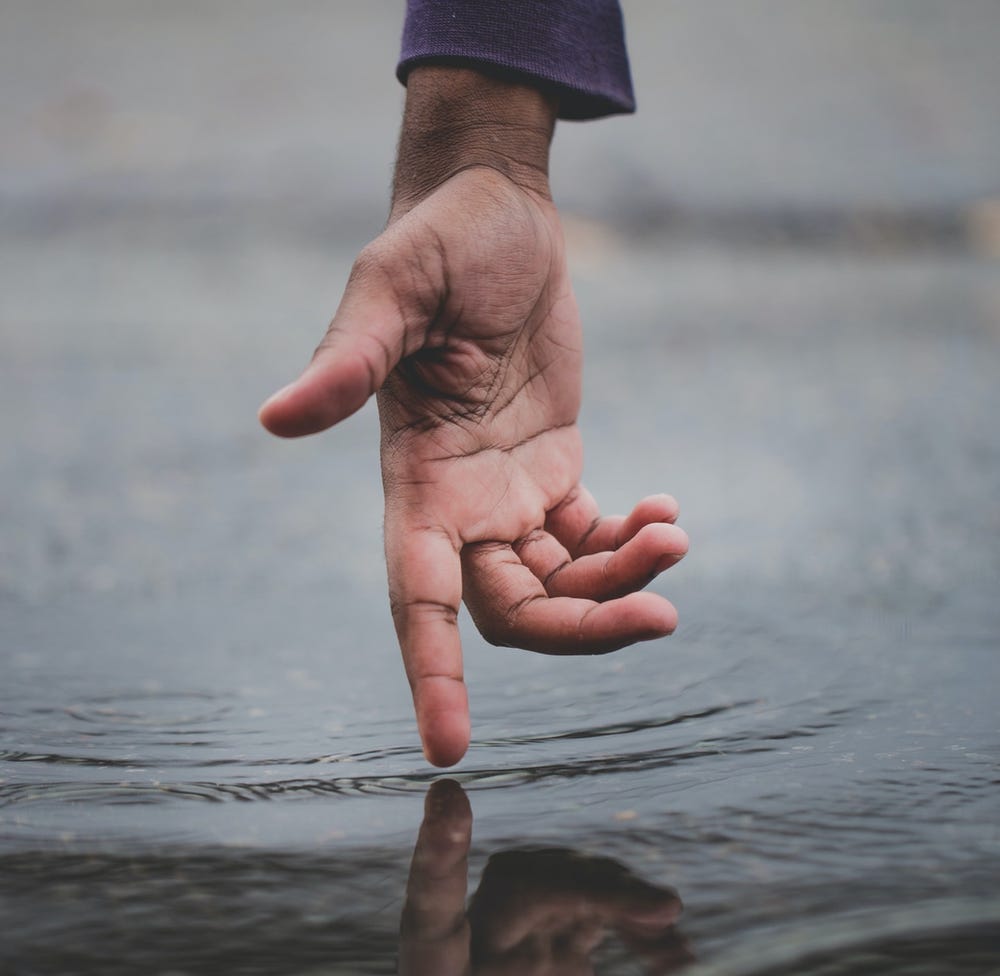That Day and How to Hold On to Others: Living Forward From 9/11
Memory is a form of life after death
“A kindergarten boy who saw people falling in flames told his teacher that the birds were on fire. She ran with him on her shoulders out of the ashes.”
— Brian Doyle, from his prose piece, "Leap," on September 11th
Global loss. Before COVID-19, there was 9/11. Most Americans and swaths of the world felt it 20 years ago—a wave of inexplicable loss. People from at least 90 countries perished. Deeper for many, was intimate loss. Only a few families, in terrifying phone calls, got to say good-bye to people they loved and would lose that day.
That day. Do you hear the emphasis on that? That day, then for weeks and months (for some, years and years) the living grieved. Twenty years later grief returns, hard but also healing, because it’s one face of empathy.
I won’t ask you if you remember what you were doing on that day, because (unless you were young or unborn) I know the answer.
You remember.
If you were like me (at that point I was living in Pennsylvania), you watched the events of that morning unfolding in real time, staring at your television even though it was a Tuesday, a work day, cup of tea in hand, in total disbelief. Maybe you were in another time zone. There was the shock of the news, the rush of questions flooding your mind, the animal body that is the physical you feeling it all viscerally. You were just going along doing normal stuff, then suddenly you weren’t.
Most Americans aren’t used to war on our own soil, witnessing how brutally and randomly some humans can kill other humans en masse. Eight children died that day riding on planes. What could any of those children have done to deserve to be a part of that day’s awful history? Nothing, of course.
The blessed story, one of many, in this history?
There were also children in daycare centers where the planes hit. Miraculously they were all saved by teachers who led them to safety, teachers who had their own children and families to worry about, teachers holding back tears, stoically telling the children they were going for a walk, some teachers doing it all barefoot because the paper booties they wore in the infant care areas quickly shredded once outside.
Those daycare teachers, some of the lowest-paid professionals in our society, created a bubble of calm in the chaos for their tiny troops. Some of those children lost parents, but they survived.
Stories are like individual rivers flowing into one ocean.
I woke up groggy that morning, sleep deprived. I’d been up much of the night with my tortoiseshell cat who was not recovering from a surgery the day before to repair what turned out to be unrepairable. She was dying of cancer.
These two very different story lines, the global and the personal, converged. Life is like that, isn’t it? Life is never about only you or only me. There’s always a bit of us.
That morning, I saw how loveliness and ugliness coexist. That morning, I didn’t know about the teachers who refused to let the terrorists take their kids, but that’s proof that love and hate are found together. That day, what I experienced was a stunningly beautiful, late summer morning. Birds happily flocked and fussed at the feeders. Dew made the still-green maple leaves shimmer. Among the spray of orange marigolds in the garden, petals glistened.
Life in its ordinary beauty—the day’s dazzling blue ceiling and the flutter of iridescent wings—was all around me. So, too, was death. It dominated the images on that old chunky television and in the frail form of a sick cat who would have existed in complete anonymity in the universal scheme of things, if I didn’t love her so.
We’re each so small in the vastness of space and time, but we’re always huge in the lives of the people who love us. There are only a handful days in my life more traumatic than September 11, 2001. What about you?
My goal here isn’t to draw you into sorrow, though as witnesses, it’s appropriate to pause and remember.
Memory is form of life after death.
Still, while sorrow has its place, life is too short to spend much time there.
So, I want to tell you about a very different morning. Why? Because we forget too many wonderfully regular mornings, which are such a critical counter-balance to the rare but well-remembered terrible ones. Afterwards, I’ll share one practice to help you hold on to anyone in your life that you care about, so they can always be with you, even if some day they can’t.
Several days ago putting out a suet cake in the darkness for avian visitors, I listened to the intermittent chirps and peeps of migrating birds navigating the purple-black air toward wherever they spend their winters.
Have you discovered how, as fall approaches, birds fly over you while you’re sleeping? Step outside after dusk or before dawn and listen. Listen to these small beings accomplish a major feat as they fly thousands of miles, and they do it using feathers and bones that are hollow yet powerful.
Suet cakes are sweet and seedy and full of fat, so the birds will have a snack on me—the migrants as well as the year-round residents.
There is both a sadness and a smile that always emerges this time of year. I hate to say good-bye to my birdy friends that only come for summer. Have you ever seen Black-headed grosbeaks or Orange-crowned warblers or the plump, gray-lavender breasts of wild Band-tailed pigeons? Think: art alive.
I’m also joyful for them to be on their way. They’re going home. Don’t you always feel good when you’re back home after a long trip? After the last year-and-a-half of COVID cocooning, I’m glad someone gets to go someplace.
In the peeps and chirps, though, I heard something else. Through the forest came a kind of bawling, a low but loud animal voice expressing something familiar: longing.
Okay, you can say I’m anthropomorphic, that is, giving human emotions to an animal, but you would be wrong. It was a bear, and bears love, and anyone who loves will eventually experience longing when separated from a beloved other. The bear would moan and pause, over and over.
After snapping shut the suet feeder, I looked up at one faint star. I thought, “Little star that’s actually enormous, how does your light find its way from beyond our solar system, through the thin coastal fog, and into my retina, becoming a brightness in my mind?”
One way to live with longing and loss is curiosity. Being curious is my favorite antidote to a somber mood.
I sat down on a damp bench, watching my cup of tea send up ribbons of steam merging with mist, listening to that distant bear, the moan then the silence, the moan then the silence. A strange pulse.
Then surprise. Another call, higher pitched and more like a plea. A young bear! I don’t know how long I sat, listening to the two bears that I assumed must be sow and cub. Guess what? I could hear the two anxious calls moving toward each other. Eventually there was only silence (until disrupted by the first squawks of awakening jays).
Some mornings, actually most mornings, start with happy endings like that one, which early in the day makes for a happy beginning. Mostly we wake and leave our longing behind in the darkness and walk into the light of the ones we love. It’s a good reality to remember, then to look for.
Still there will be the heart-breaking mornings, worse than the cub that doesn't come. So, I want to tell you that one of the best ways to prepare for surviving the endings that will inevitably arrive is to be intentional in remembering the people you care about. You need to see them, then embed them inside you while they are alive and well in their one-of-a-kindness, in all their charms and quirks that you adore, and sometimes, that drive you nuts.
A practice for you to try.
After you read this and you are in the presence of someone meaningful in your life, I want to you look at them and notice something new, a detail, or several, unique to them. (You can also use this practice with a complete stranger, or an incomplete stranger if you wish, to feel more connected to and compassionate toward the wild assortment of people on our planet.)
For instance, when your someone talks, what do they do with their hands?
Do those hands rest in their lap like sleeping puppies or fidget with crumbs on a plate? Or do their hands do a little dance in the air that only they can do? Is there an arc of dirt under a thumbnail that reminds you they like to keep their hands busy? What about a faint scar, some mystery you know nothing about? What’s happening with their right pinky and their left knuckle? Are their palms rough or ruddy?
Focus on those hands. Memorize them, everything about them and what they’re doing in the moment. You could also physically take their hands in yours, embracing their texture and warmth. Then close your eyes and see those amazing hands.
Watch them in the real world, then in the inner world of your mind. Tonight, as you prepare to drift into sleep, summon those hands back . . . a living memory.
Those hands, that moment, are now part of you. No matter what happens, you’ll have those hands to hold on to.
I only offer the hands as an example. You might notice anything—hair, eyes, collarbone, the twisting inward of their belly button, a certain long silvery strand of hair on a lapel, the hurried way they tuck their tee-shirt sidewise into their jeans.
Perhaps instead of looking, listen to them. Not just to their words, but how their voice sounds when they speak some phrase, the pitch and tone when they say, “um,” pausing to think.
Better yet, lean in when they say your name. Listen with your whole body. You never want to forget their voice saying your name.







